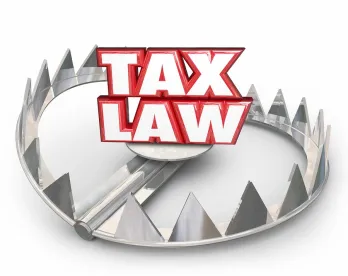Many individuals give gifts to family, friends, and charities during the holiday season. Knowing the tax rules applicable to gifts will ease the process and enhance the joy of gifting.
Gifts Come in Many Shapes. For individual U.S. citizens or residents, the federal gift tax applies generally to all gifts of property – of whatever kind and wherever situated — to the extent that their value exceeds available exclusions, deductions, and exemptions. Special valuation rules apply to gifts other than cash and an appraisal may be required to substantiate the value of certain gifts.
Who Pays the Gift Tax? The individual who gives (i.e., the donor) pays the gift tax.
Not All Gifts Will Result in the Outright Payment of Gift Tax.
-
Annual Exclusion Gifts. The first $14,000 of gifts made to any individual recipient (i.e., the donee) is excluded in determining the total amount of gifts for 2017. The annual exclusion amount is indexed for inflation and will increase to $15,000 for gifts made in 2018. Married couples can either make separate annual exclusion gifts to the same individuals or elect to have the gifts made by each spouse to other individuals in any calendar year deemed to have made one-half by each spouse (i.e., the election to split gifts), but a federal gift tax return (IRS Form 709) must be filed to make the election. In the case of a gift in trust, the beneficiary of the trust is the donee. Generally, gifts in trust do not qualify for this exclusion.
-
Medical Expenses and Tuition Exclusion. Amounts paid on behalf of an individual as tuition directly to a qualifying educational organization for the education or training of that individual are not treated as gifts for purposes of the federal gift tax, regardless of amount. The same applies for amounts paid on behalf of an individual directly to a medical provider with respect to that individual as payment for the qualifying medical expenses arising from such medical care. Additionally, payments for room and board, books, and supplies do not qualify for the exclusion.
-
Deduction for Gifts to Spouse. Gifts to a U.S. citizen spouse are generally not subject to gift tax, regardless of amount.
-
Deduction for Charitable Gifts. Gifts to qualified organizations – including nonprofit groups that are religious, charitable, educational, scientific, or literary in purpose, or that work to prevent cruelty to children or animals – may be deducted for gift-tax purposes (and for income-tax purposes by individuals who itemize deductions on their federal income tax return (IRS Form 709, Schedule A, Itemized Deductions), subject to certain limitations and substantiation and reporting requirements).
-
Lifetime Gift Tax Exemption. Because federal gift tax is not paid until an individual has made lifetime taxable gifts (i.e., gifts in excess of applicable exclusions and deductions) in excess of the $5.49 million exemption (for 2017), the tax is inapplicable to most individuals, although a federal gift tax return must be filed. The exemption amount is indexed for inflation and will increase to $5.6 million in 2018.
Get Competent Advice Before Gifting. For holiday gifting without regret, get competent advice before gifting. See IRS Publication 950: Introduction to Estate and Gift Taxes.
Victoria Jobe authored this post.


 />i
/>i

